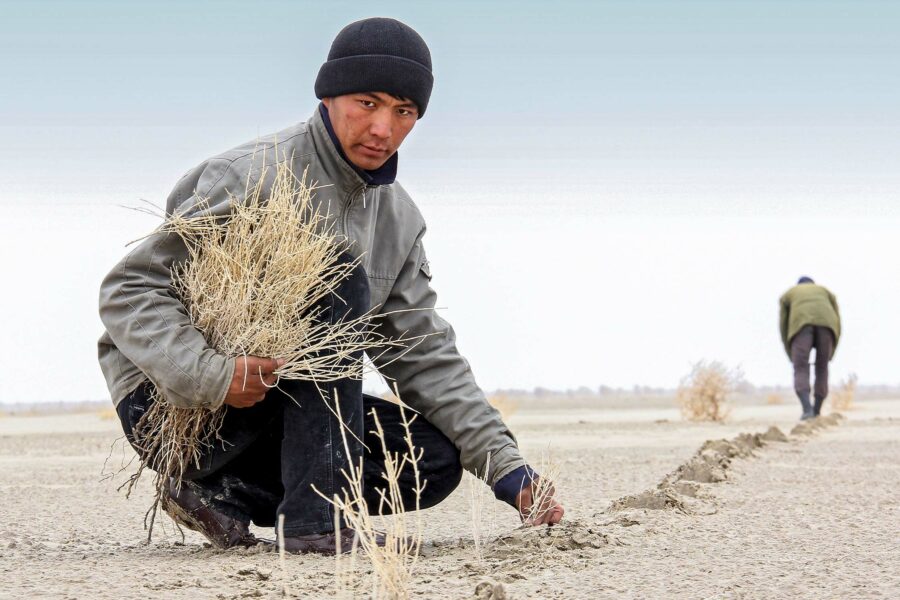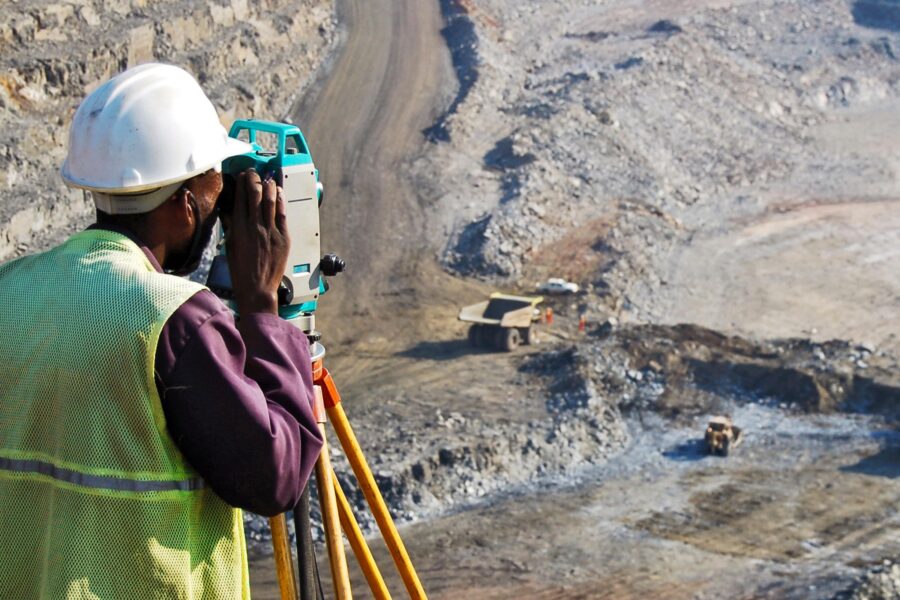Unmasking the forces behind the resource curse
The shift toward cleaner energy requires high volumes of raw materials such as cobalt, copper, and lithium. These critical resources are often extracted from countries with poor governance structures and alarming rates of poverty. To achieve a just transition, we must confront and combat corruption in these resource-rich countries head on
Extractive and land resources — Sub-Saharan Africa

As I look out of the window of my apartment, a teenage boy is unlocking an electric scooter through the app on his smartphone. A few meters away, a woman is connecting her electric car to the newly installed charging station. The scooter, the boy’s phone, the woman’s car, and even the laptop I am writing on all have one thing in common. They all contain a mix of ingredients that allow their batteries to function: lithium, nickel, copper, cobalt… These materials have become critical for our economy. They power our devices and sustain our lifestyle, with the promise that they will drive us away from fossil fuels, and thus from the threat of climate change.
It is no wonder that demand for these materials has surged in recent years. According to recent statistics, demand for cobalt almost doubled between 2010 and 2017, from 71,000 tons to 136,000 tons. By 2025, it is expected to reach 222,000 tons.
The vast majority of cobalt (around 70%) is extracted in one single country: the Democratic Republic of the Congo (DRC). This concentration puts the country at the heart of the global economy, and at the heart of the fight against climate change. Despite its potential, the story of Congolese cobalt has been, at least for now, tainted by widespread corruption and missed opportunities to generate wealth for the Congolese population.
The DRC ranks 162nd out of 180 countries in Transparency International’s Corruption Perceptions Index. This has a significantly negative impact on the fight against poverty in the country, where around 60 million people live with less than USD 2.15 per day, according to the World Bank. Corruption cannot be considered the only factor exacerbating poverty, but it causes money that should be destined for public education, health, and infrastructure to end up in the pockets of a few rich individuals.
The mechanics of corruption
How does that work in practice? The system in place is the result of the interaction of three main actors.
First, there are the big multinational mining companies, sometimes backed by the geopolitical interests of foreign states. These business giants set up operations in resource-rich countries with the objective of extracting minerals like cobalt to then export abroad – where they will be refined and enter the batteries that will later power our phones and cars.
Second, on the other side, there are local political elites, who have the power to allocate mining permits and collect taxes. When companies need to obtain a permit fast, or want to get rid of competition, or obtain benefits such as discounts or tax exemptions, the most easily available option is to bribe the political elite.
Usually, companies would not risk getting their hands dirty in a direct way. So it is in these situations that the third category of actors makes its appearance: the intermediaries. These are individuals who have strong connections with all the actors involved, and negotiate with the politicians to get advantages for the companies, finding ways to get some profit for themselves in the process. They manage to do this through bribes and an intricate net of offshore entities that makes it very difficult to trace the money. Those involved in these schemes can earn USD 250,000 a day for their business, the equivalent of what would be needed to build two schools in the DRC. Meanwhile, the population continues to struggle with poverty (as shown by the Congo Is Not for Sale coalition in a report published in 2021).
Combating corruption: mixed success
Some efforts have been made to hold these actors accountable through judicial means, but the results have not been completely satisfactory. In particular, the US (through its Foreign Corrupt Practices Act) and the UK (through its Bribery Act) have managed to some extent to investigate these corrupt schemes and reach settlements with some of the companies involved. In 2022 one of the biggest mining companies in the world, the Anglo-Swiss firm Glencore, pleaded guilty to corrupt practices in several countries, and received a fine of more than USD 1 billion, in the context of a settlement with the US, UK, and Brazil. While these initiatives by the judiciary are to be welcomed, they do not always produce an actual change in behavior.
Another option in the US is to sanction individuals under the Global Magnitsky Act for corrupt behavior. US authorities used these powers in 2017 against one of the main intermediaries operating in the Congolese mining sector, preventing him access to the US market. Sanctions are potent measures, and we need to see more jurisdictions adopting them so as to enhance their efficacy, starting with the European Union.
Unfortunately, current geopolitical considerations and the necessity to secure supply of raw materials seem to prevail over concerns of corruption risks in mineral supply chains. Western powers on the one hand and China on the other seem to have started a new scramble for African resources. This risks fueling a race to the bottom when it comes to addressing environmental, human rights, and corruption issues. The US is considering a sanctions relief on the previously mentioned intermediary, while the UK Serious Fraud Office has dropped a 10-year-long case against another mining company operating in the DRC, the Kazakh firm ENRC (now ERG). The general sentiment seems to be a willingness to soften anti-corruption measures in exchange for access to critical resources.
We must all do more
However, the fight against corruption is critical to achieving many of the UN
Sustainable Development Goals – above all the elimination of poverty. Different actors have different roles to play:
- Lawmakers globally can and should strengthen measures like anti-corruption sanctions, as well as adopt more stringent obligations for companies to conduct due diligence along their supply chains, which would oblige them to identify and mitigate corruption risks.
- Downstream companies (such as phone and car companies), incentivized by legal obligations, should clearly assess corruption risks in their supply chain and put pressure on upstream suppliers to comply with national and international laws.
- Investigative and judicial authorities around the world should increase their efforts to hold companies and individuals to account, using the tools at their disposal.
Lastly, the international community has a fundamental role to play in protecting civil society actors, especially from sourcing countries, who are fighting a battle against the unfair exploitation of their resources, sometimes risking their life and security. Guaranteeing the civic space for people to denounce the fallacies of the system is a non-negotiable requirement to get any results, locally and internationally.
We will only achieve a just transition if it is just for everyone. This will only happen if the fight against corruption is a high priority on the global agenda, and if the people powering this transition can benefit from the mineral richness that is giving the planet a lifeline.





